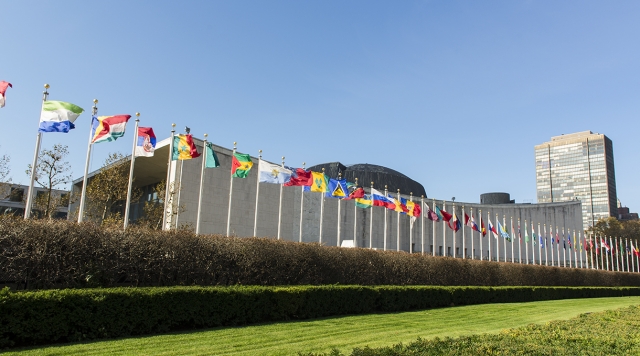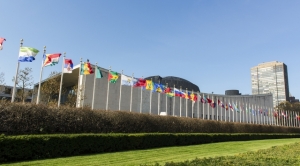UN Countries Advise Georgia to Guarantee Media Freedom and Pluralism
Georgia has been elected a member of the Human Rights Council for 2016-2018.
At the same time, 71 Member States of the United Nations have reviewed and given recommendations on the human rights conditions in Georgia.
At the session of the UN Human Rights Council’s Universal Periodic Review (UPR) in Geneva, the Georgian delegation presented a report on the reforms the Georgian Government has carried out since 2011 to improve the human rights situation in Georgia
While presenting the national plan provided by State, Georgia’s Deputy Minister of Foreign Affairs, Khatuna Tortladze, emphasized the successful achievements of the Georgian Government in terms of improving human rights in the country.
“We have successfully implemented democratic and free elections and created a precedent for the peaceful transfer of power in 2012. The country’s Parliamentary Elections in 2012, Presidential in 2013 and Local Elections in 2014 were all assessed free and democratic by international organisations,” Tortladze said at the session.
Furthermore, adoption of National Human Rights Strategy and its Action Plan in March 2014 was considered one of the main achievements by the government in terms of the human rights record.
The UN Member States recommended that the Georgian Government continue to carry out further reforms in the human rights area.
The delegations gave particularly high assessment to the Human Rights Strategy adopted by the Georgian Government and the establishment of the Human Rights Council under the Georgian Prime Minister.
Special emphasis was placed on the necessity of introducing international monitoring mechanisms in the occupied territories to ensure human rights protection.
Recommendations were also made regarding the ways to address the challenges still facing Georgia.
Special attention was paid to the protection of rights of women, children and people with disabilities and to the ensuring of freedom of speech in the country.
“We recommend that Georgia ensure the right of freedom of expression, in particular ensuring plurality and independence of the media, as well as protection of media outlets,” a representative of the Czech Republic said.
What they advised the Government of Georgia
United Nations: “We remain concerned by persistent shortcomings in Georgia’s legal system that have resulted in incomplete investigations, premature charging of suspects, and inappropriate use of pre-trial detention. We are also concerned by the increased societal intolerance of members of minority groups, and an apparent narrowing in the space for media. We recommend that Georgia bolster respect for pluralism and open debate by fostering a non-violent environment [that is] tolerant of dissenting voices – including those of the opposition – and avoiding politically motivated actions against critical media outlets.”
Poland: “Enhance efforts to guarantee freedom of speech and of the press and other media, and to ensure that complaints in this regard are promptly investigated and the perpetrators are prosecuted and punished.”
Germany: “Ensure equal treatment for all media and prompt investigations of reported violations against the rights of press and speech.”
Norway: “Ensure that allegations of self-censorship, threats against journalists and low public trust in the media are investigated in a timely, transparent and effective manner and that those responsible are held to account.”
Belarus: “Develop relevant legislation to resolve the issue of ownership of private media, in a spirit of transparency.”
Georgian Foreign Minister Giorgi Kvirikashvili, in his special briefing dedicated to the UN Human Rights Council’s UPR, highlighted that the Report reflects a series of important steps the Georgian Government has taken towards ensuring the fundamental principles of human rights on the path towards building a truly European democratic state.
“The Georgian Government’s position with respect to media freedom is firm and unequivocal.” Kvirikashvili said. “I would like to reiterate the government’s very strong position in a regard to the freedom of the media. We are trying our best to provide objective information to the international community and international organizations about media freedom in the country. I would like once again to confirm our strong position in the non-interference of the court,” he said.
He went on to emphasize the necessity of conducting transparently those steps taken with respect to such matters of great public interest and significantly impacting on the international image of the country.
The UPR working group’s report, which will incorporate all recommendations for Georgia, is to be approved on 12 November 2015.
Tamar Svanidze












